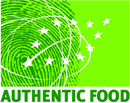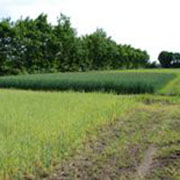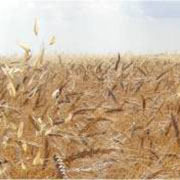AuthenticFood
More about the project
Main results and conclusions
In AuthenticFood a wide range of analytical methods have been developed and validated for authentication of organic plant products. These have been applied to plant samples from Danish and Italian field trials and independent test-set samples. It has been shown that several analytical methods have the potential to authenticate the geographical and/or the agricultural origin of plant products.
Elemental fingerprint analysis is particularly suitable for revealing where a plant has been grown due to the inherently different soil mineralogy of geographical locations across Europe. When zooming in on individual elements by stable isotope analysis it is also possible to reveal how a plant has been fertilized – especially when focusing on isotopes of specific plant compounds such as amino acids and oxygen containing anions. Metabolomic profiling has also proven valuable for discriminating between organic and conventional plant products when combined with multivariate statistics.
The following results have been obtained during the AuthenticFood project:
- It has been shown that pesticide residue analysis is insufficiently sensitive to document the agricultural origin of plant products.
- Several novel analytical methods for authenticity testing of organic plants have beendeveloped and protocols have been published.
- Elemental fingerprint analysis of plants can be utilized to reveal their geographical origin and novel analytical methods have been tested for this purpose.
- Stable isotope analysis of nitrogen, hydrogen, carbon and oxygen have proved suitable for discriminating organically and conventionally grown plants – especially when focusing on stable isotopes in specific plant compunds.
- Metabolomic profiling combined with multivariate statistics can discriminate organically and conventionally grown wheat and tomatoes.
- AuthenticFood has led to several new collaborations and international projects that focus on the practical implementation of novel methods for food authentication.
AuthenticFood
 16 partners, 11 countries
16 partners, 11 countries
Coordinator
Professor Doctor Søren Husted, University of Copenhagen, Faculty of Life Sciences, Denmark.
Project partners
Cédric Guignard, GL Centre, LU
Cristina Micheloni, AIAB, IT
Erik Andersen, DVFA, DK
Erik Huusfeldt Larsen, DTU Food, DK
Federica Camin, FEMIASMA, IT
Jana Hajslova, ICT, CZ
Johannes, Kahl, UniKa, DE
Marja Särkkä-Tirkkonen, UHEL, FI
Michèle Lees, EAF, FR
Pierre Ott, ECOCERT SA, FR
Randi Seljåsen, Bioforsk, NO
Saskia van Ruth, RIKILT, NL
Simon Kelly, FERA, UK
Torfinn Torp, BIOFORSK, NO
Virgilijus Skulskis, LIAE, LT
Vittorino Crivello, BIOS, IT
Project stakeholders
Target groups of the research conducted in AuthenticFood encompasses farmers, certifiers, manufacturers, retailers, consumers, scientists, politicians etc. As organic products are increasingly imported from non-European countries, target groups are found worldwide.
Consequently, the research from AuthenticFood is also expected to have an impact on large non-European organic markets such as the United States of America.



